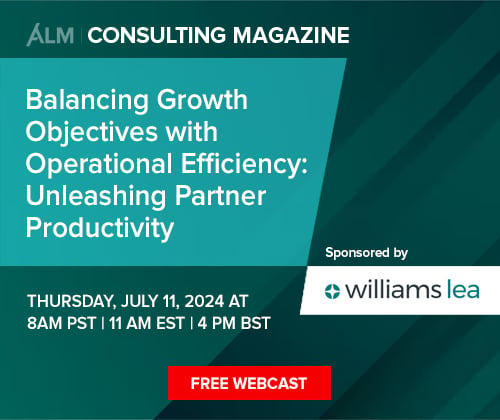By Stacy Collett
To continue reading, become an ALM digital reader
Benefits include:
- Authoritative and broad coverage of the business of consulting
- Industry-leading awards programs like Best Firms to Work For, Global Leades and Rising Stars
- An informative newsletter that goes into the trends shaping the industry
- Critical coverage of the employee benefits and financial advisory markets on our other ALM sites, BenefitsPRO and ThinkAdvisor
Already have an account? Sign In Now

